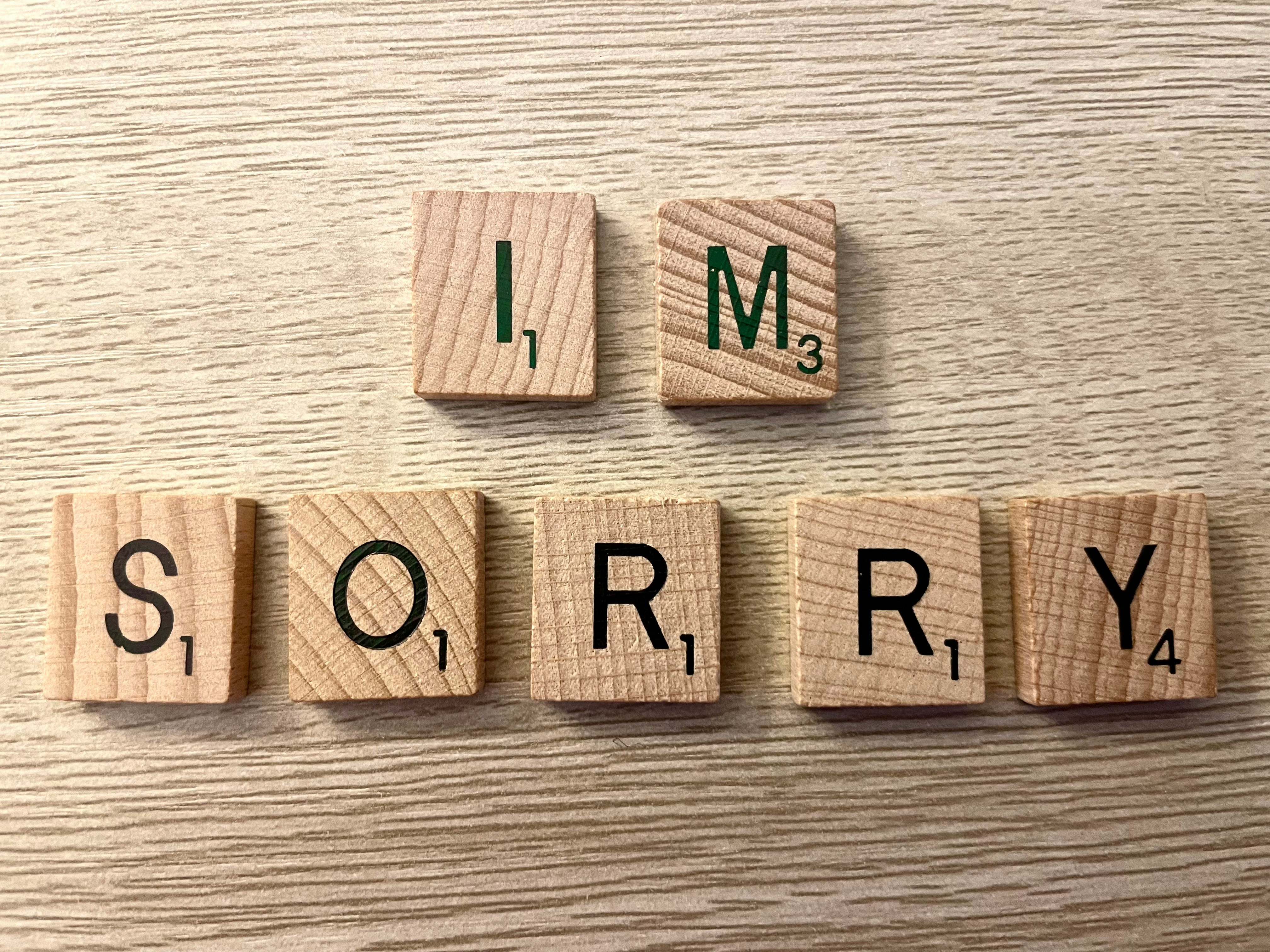
Breaking the Sorry Cycle: Unlearning Unnecessary Apologies
The Question We Need to Ask
"I'm sorry, can I just say something?"
If you're someone who has ever started a sentence like this in a meeting, a classroom, or even in your own home - why? Yet, most of us who identify as women have been there.
Apologising for taking up space. For sharing an opinion. For having needs. For…existing, really.
Most of us didn't even realise when we learned to do it.
But where does it begin?
Where It All Starts
It often starts early. You're a little girl being praised for being 'quiet' and 'well-behaved'. You're taught to say sorry when you speak too loudly, when you forget to smile, when someone else bumps into you. You're told not to be bossy when you take charge, not to be dramatic when you cry, not to be "too much" when you express joy or anger.
These small messages add up. Over time, they teach you that your presence, your voice, and your emotions are something to be managed, minimised, even.
You learn to shrink. Not because anyone sat you down and said 'you don't matter,' but because it kept being whispered between the lines.
The Many Faces of 'Sorry'
Let's break it down. The word 'sorry' is now a reflex. A social safety net. A preemptive buffer against conflict or rejection.
You're running 2 minutes late? You say sorry.
You speak up in class? 'Sorry, just wanted to add - '
You ask your partner for help with something they already agreed to do? 'Sorry to nag, but -'
You ask for space, for time, for care? 'Sorry, I know you're busy, but…'
The apologies somewhere become about permission. Seeking it. Earning it. Hoping you're not inconveniencing anyone by existing.
The Self-Worth Connection
This is a self-worth issue.
When society constantly rewards women for being accommodating, agreeable, and self-sacrificing, we start believing that our value lies in being 'low maintenance.' We learn to pride ourselves on how little we ask for, how much we tolerate, how good we are at adjusting.
What Are We Really Apologising For?
So, what are we apologising for, really?
For being visible.
For needing things.
For asking for more.
For setting boundaries.
For wanting something different from what's expected of us.
And when we don't say sorry, we get called rude. Difficult. Selfish. Too ambitious. Too emotional. Too loud. Too something.
So we go back to saying sorry. Because it feels safer.
Why Us?
Okay… but why us?
Because patriarchy is about control, politeness, about teaching you to smile through discomfort, to nod through disrespect, to apologise for taking up space that was never meant for you.
Because for centuries, being a 'good woman' meant putting others first. It meant silence over conflict. Support over ambition. Softness over strength.
But we're allowed to be more than "good."
We're allowed to be whole.
Unlearning Starts Small
Unlearning this doesn't mean never saying sorry again. It means learning to pause and ask:
'Am I apologising for being rude… or for being real?'
It's about practising small shifts:
Saying 'thank you for waiting' instead of 'sorry I'm late.'
Saying 'I need a break' instead of 'I'm sorry, I can't keep up.'
Saying 'I have a different opinion' instead of 'Sorry, but I disagree.'
The way we speak helps build mindset shifts. They help you reclaim your right to take up space, ask for what you need, and show up fully as yourself.
Cultural and Identity Perspectives
Guilt doesn't show up the same way for everyone. In many cultures, including India's, men are often taught to assert, while women are taught to accommodate. So when a woman tries to express her needs, she often feels like she's breaking some unspoken rule.
And for queer individuals and non-binary folks, the pressure can be even worse. When society doesn't even give you a clear role to "perform," every act of self-expression can feel like a rebellion, and in the process, the guilt can feel overwhelming.
A Political Act
Unlearning guilt is really a political one.
If you find yourself apologising for things that don't require it, here's your gentle reminder: you're not doing anything wrong. You've just spent years learning how to survive.
If you or somebody you know is struggling with something difficult and needs to get in touch with a therapist, consider reaching our Support and Engage verticals for affordable and inclusive help!
Like our content? Please show us some support by sharing and up-voting!
Image Credits: Unsplash
